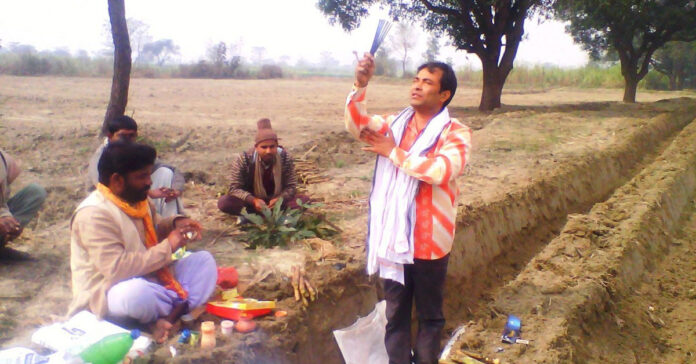Subhrant Shukla, was an ex-executive at the pharmaceutical giant, Ranbaxy in 2010. He took to full-time farming in his village Pandit Purwa Surajkhand in Lakhimpur Kheri. According to Wire.in, this corporate employee ignored the suggestions given by his peers. They told him that not everything which Modi says is completely true. However, it’s proved that they were absolutely true.
Turned to farming
Subhrant could not resist the temptation to become an entrepreneur. He turned to farming. Very soon, he updated himself with the latest innovations in sugarcane cropping, participated in various farmers’ forums, and emerged as one of the most reputed progressive farmers in Uttar Pradesh.
It was not easy for Subhrant to quit his cushy job in Ranbaxy. He wanted to utilize the land resources and work with his brother to lead a better life.
New cropping methods
Initially, he enjoyed farming for few years. He became well-known among the farmers, as he introduced the trench method in cropping. This method involves digging up deep drains in farms to facilitate judicious use of water and provide better stability to the standing crop.
Furthermore, he initiated new forms of inter-cropping in Lakhimpur Kheri. He educated the farmers to use the farm space to also grow vegetables, maize, potato and chickpeas, while growing sugarcane varieties.
Multiple awards
New farming methods gave him an immediate fillip, as his production was higher, better crop quality. Fortunately, these methods got recognized across the state. In no time, he received multiple awards, including from the agriculture ministry and the then Akhilesh Yadav-led Samajwadi party government and various state agencies involved in research and development.
Huge fan of Modi
However, this apolitical man turned a huge fan of the then Gujarat Chief Minister Narendra Modi. Then Modi was trying to emerge as PM candidature in 2014 parliamentary elections.
Then Modi organized a number of events to showcase his vision. One of them was the Vibrant Gujarat Global Agriculture Summit, 2013. Subhrant was selected by the Akhilesh Yadav government to represent Uttar Pradesh at the summit. Apparently, everything was rosy.
Emotionally connected
Subhrant was swept off his feet, when he heard the inaugural speech of Modi at the event. He praised Modi till he became PM in 2014. Very soon, Subhrant got connected with Modi emotionally. He thought that only Modi could be the only leader, who can help the farmers.
After returning from the summit, Subhrant began campaigning for Modi and rested only after Modi became the PM.
After Modi became PM
But after seven years of Modi, Subhrant saw all his dreams came crashing down. He slowly understood that none of his promises were fulfilled. He understood that everything Modi spoke was a ‘public relation exercise’
Presently, his family cultivates sugarcane in around 30-35 acres of land, the payments are pending since last January. Moreover, the rates of fuel, fertilizers and electricity rose drastically. The delay in payments increased their debts.
He felt that Modi would correct himself in 2019 but unfortunately, all the government schemes like crop insurance and low-interest agriculture loans profited only the big companies. However, nothing changed.
Quits full-time farming
Moreover, Subhrant had to suffer heavy losses due to stagnant prices and pending bills from the government. Hence, Subhrant decided to quit full-time farming and take up a corporate job.
So that there would be some kind of permanent income source for the family. However, he wants to continue helping his brother in farming.
Subhrant’s view on Modi now
When the reporter from Wire asked him which government would he expect in the forthcoming assembly elections in Uttar Pradesh, he replied that any other government would be better than BJP. He said,
“Modiji is a good orator, and so is Yogiji. We need people who can govern well, listen to the concerns of people, and work on them”.


